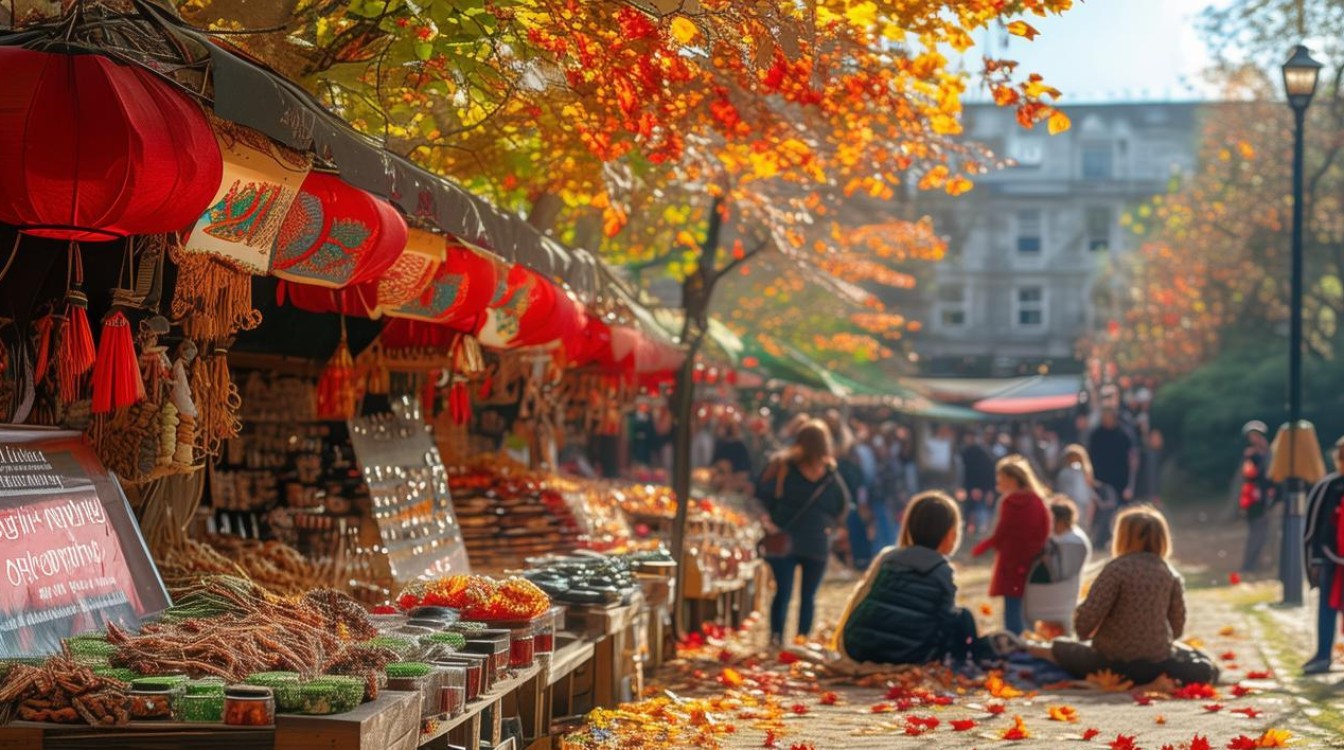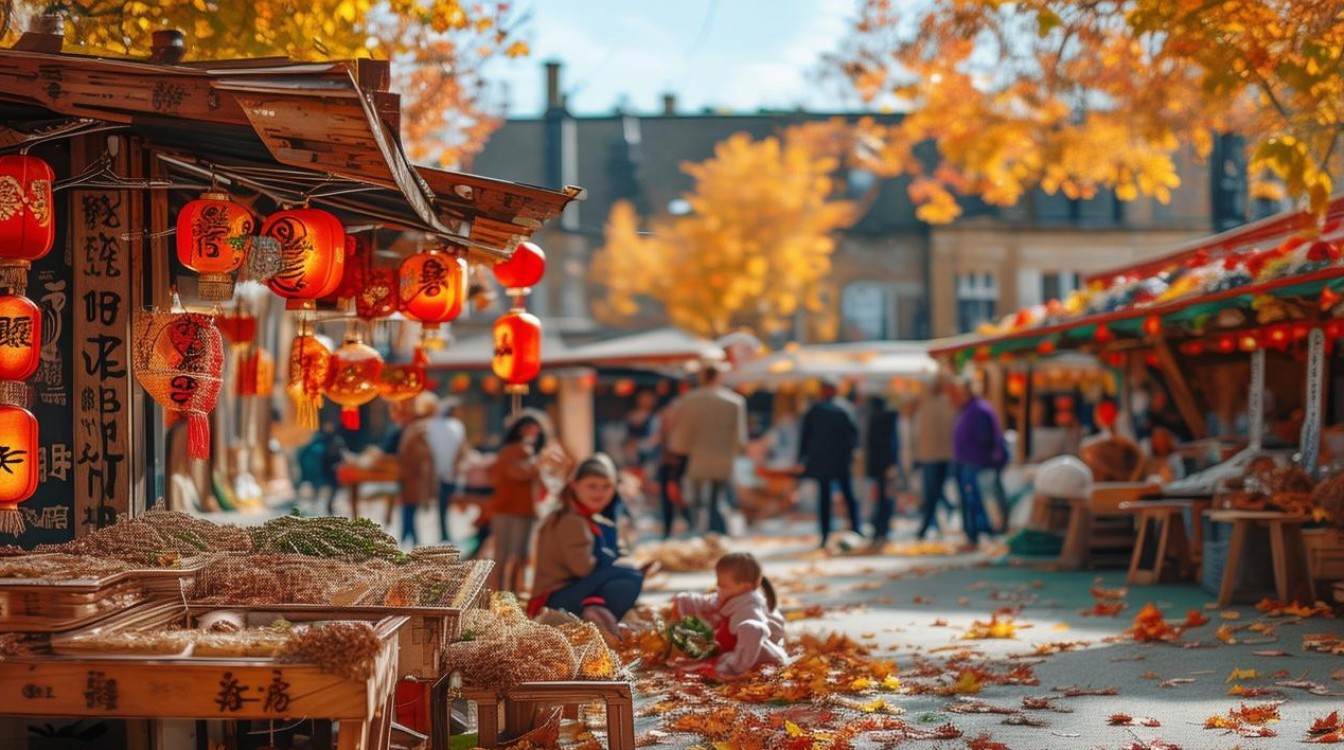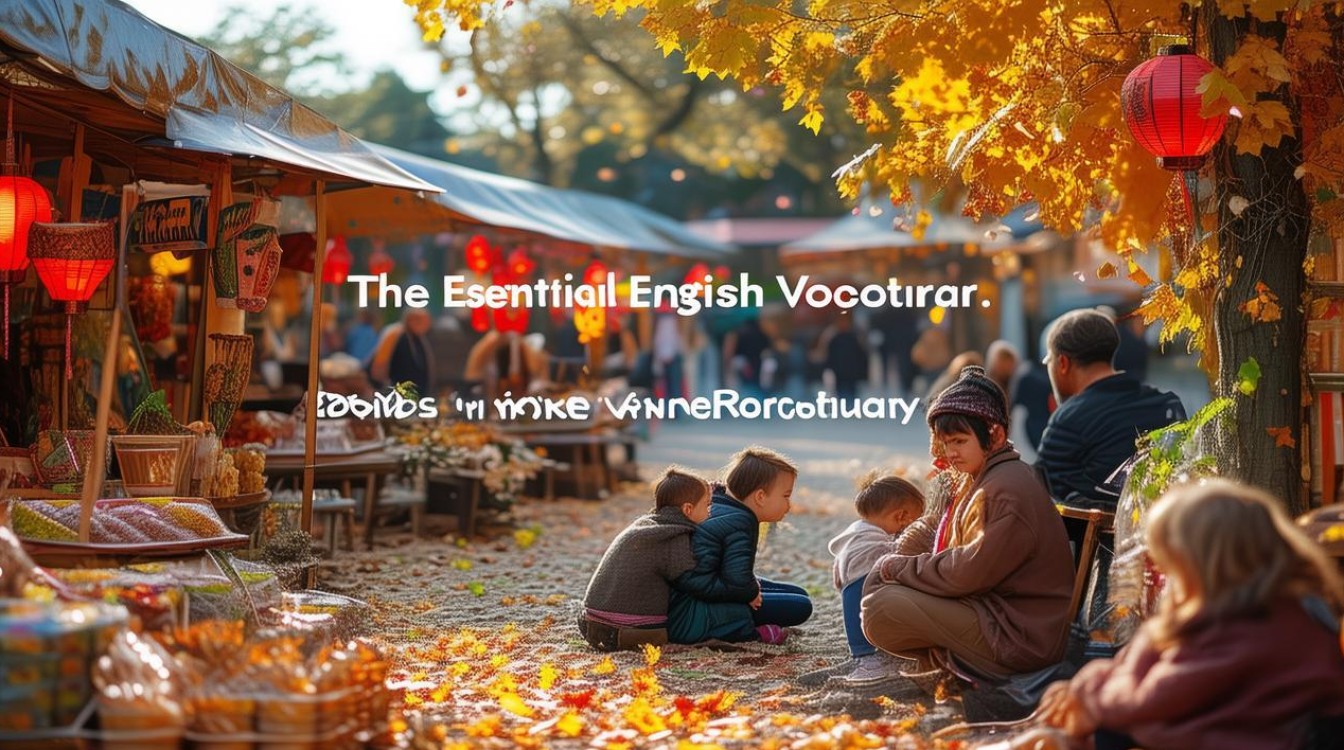The Double Ninth Festival (重阳节, Chóngyáng Jié) is a traditional Chinese holiday celebrated on the ninth day of the ninth lunar month. Rooted in history and culture, this festival symbolizes longevity, respect for elders, and the appreciation of autumn. For English learners, cultural enthusiasts, or travelers, understanding key English words and phrases related to this festival enhances appreciation and communication. Below is a curated list of essential vocabulary, along with cultural insights.

Core Festival Terms
- Double Ninth Festival (重阳节) – The official English name for the festival, referring to the double "nine" (九, jiǔ) in the lunar calendar.
- Chongyang Festival – An alternative name, directly transliterated from Chinese.
- Senior Citizens’ Day (老人节) – In modern China, the festival also honors the elderly, aligning with traditional values of filial piety.
- Ascending Festival (登高节) – A historical name, referencing the custom of climbing mountains to avoid misfortune.
Traditional Customs & Activities
- Mountain Climbing (登高, dēng gāo) – A symbolic practice to ward off bad luck and embrace good health.
- Chrysanthemum Appreciation (赏菊, shǎng jú) – Chrysanthemums represent longevity, and viewing them is a key festival activity.
- Drinking Chrysanthemum Wine (饮菊花酒, yǐn júhuā jiǔ) – A traditional beverage believed to promote health.
- Wearing Cornel Twigs (插茱萸, chā zhūyú) – An ancient custom to repel evil spirits.
- Double Ninth Cake (重阳糕, chóngyáng gāo) – A steamed cake eaten for prosperity and growth.
Symbolic Plants & Foods
- Chrysanthemum (菊花, júhuā) – The festival’s iconic flower, symbolizing endurance and vitality.
- Cornelian Cherry (茱萸, zhūyú) – A plant used in rituals for protection.
- Osmanthus (桂花, guìhuā) – Often used in festive foods and teas.
- Rice Cake (糕, gāo) – Homophone for "height" (高, gāo), linking to the climbing tradition.
Cultural & Historical References
- Filial Piety (孝, xiào) – Respect for elders, a central theme of the festival.
- Longevity (长寿, chángshòu) – A recurring motif in celebrations.
- Poetry of the Double Ninth (重阳诗, chóngyáng shī) – Classical Chinese poems, such as those by Wang Wei, commemorate the day.
- Folklore & Legends (传说, chuánshuō) – Stories explaining the festival’s origins, like the tale of Huan Jing defeating a plague demon.
Modern Observances
- Family Reunions (家庭团聚, jiātíng tuánjù) – Many visit elderly relatives.
- Charity Events (慈善活动, císhàn huódòng) – Volunteer efforts to support seniors.
- Public Celebrations (公共庆祝, gōnggòng qìngzhù) – Cultural performances and exhibitions.
Useful Phrases for Conversations
- "Happy Double Ninth Festival!" – A simple greeting in English.
- "Let’s climb a mountain for good luck!" – Encouraging participation in tradition.
- "Chrysanthemums are in full bloom today." – A seasonal observation.
- "This cake symbolizes reaching new heights." – Explaining the meaning of 重阳糕.
Understanding these terms enriches cross-cultural exchanges and deepens appreciation for Chinese heritage. Whether discussing traditions with friends or writing about the festival, this vocabulary bridges language and culture.

The Double Ninth Festival is more than a date on the calendar—it’s a living tradition that connects generations. By learning these words, we honor its history while keeping its spirit alive in global conversations.


